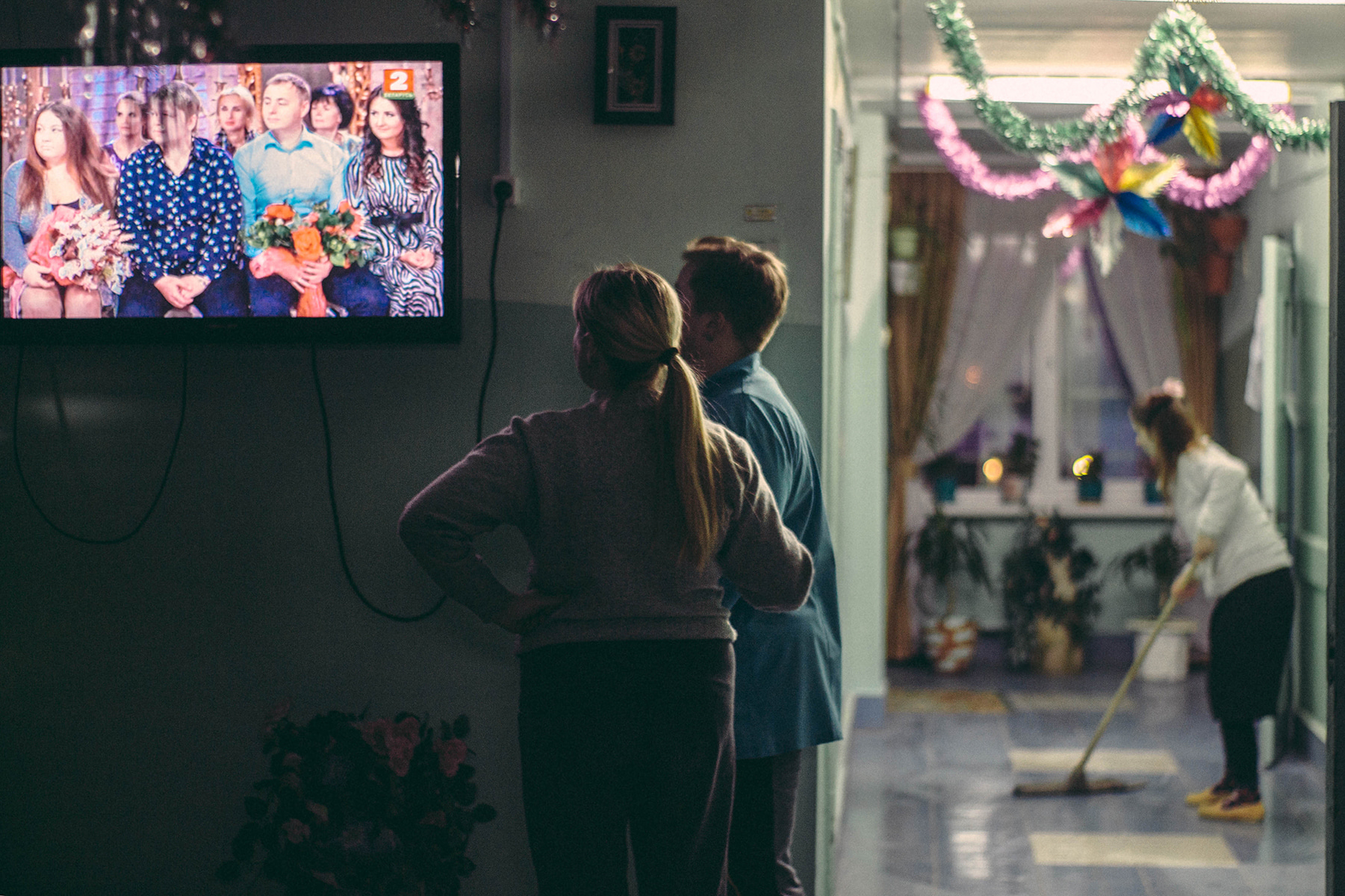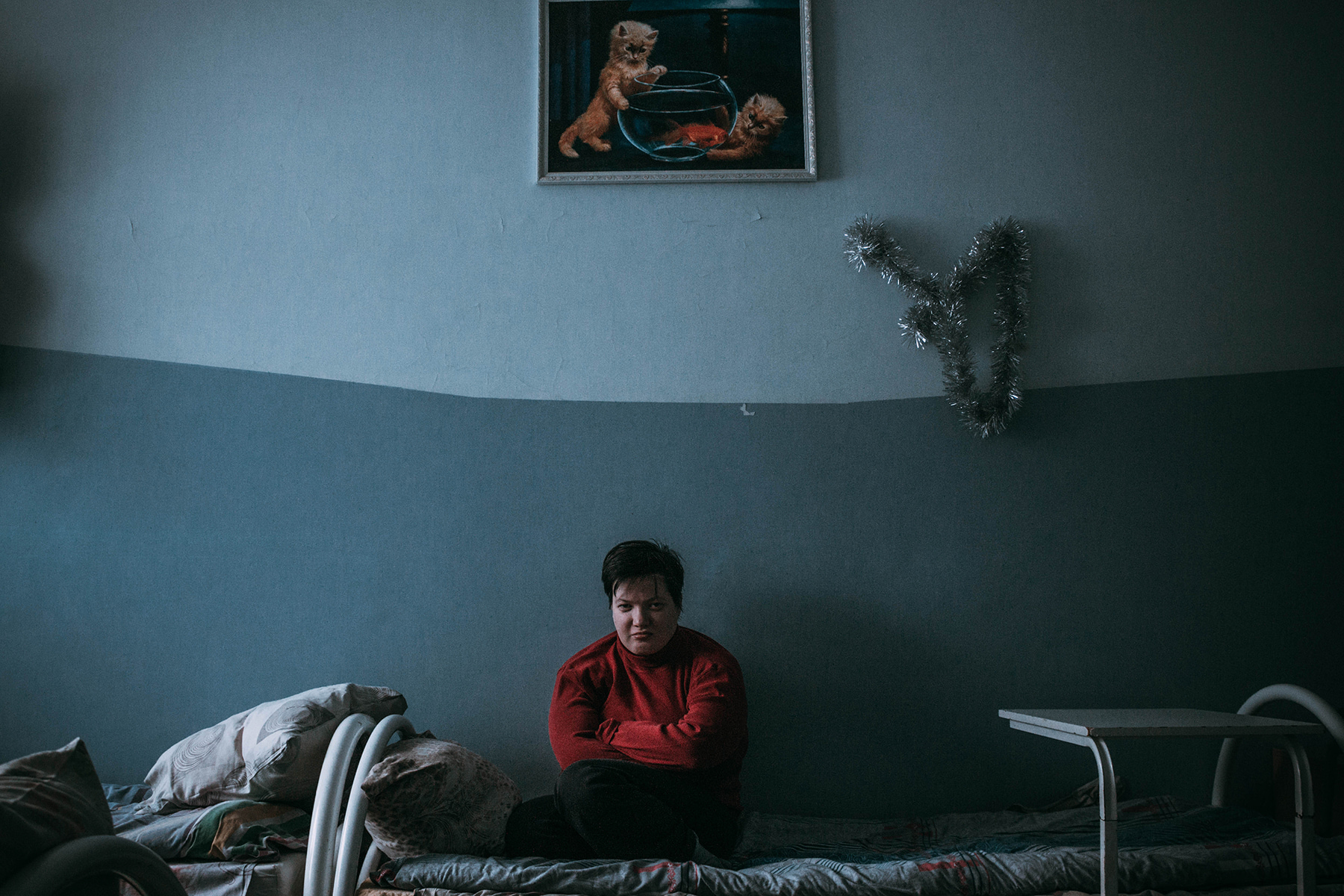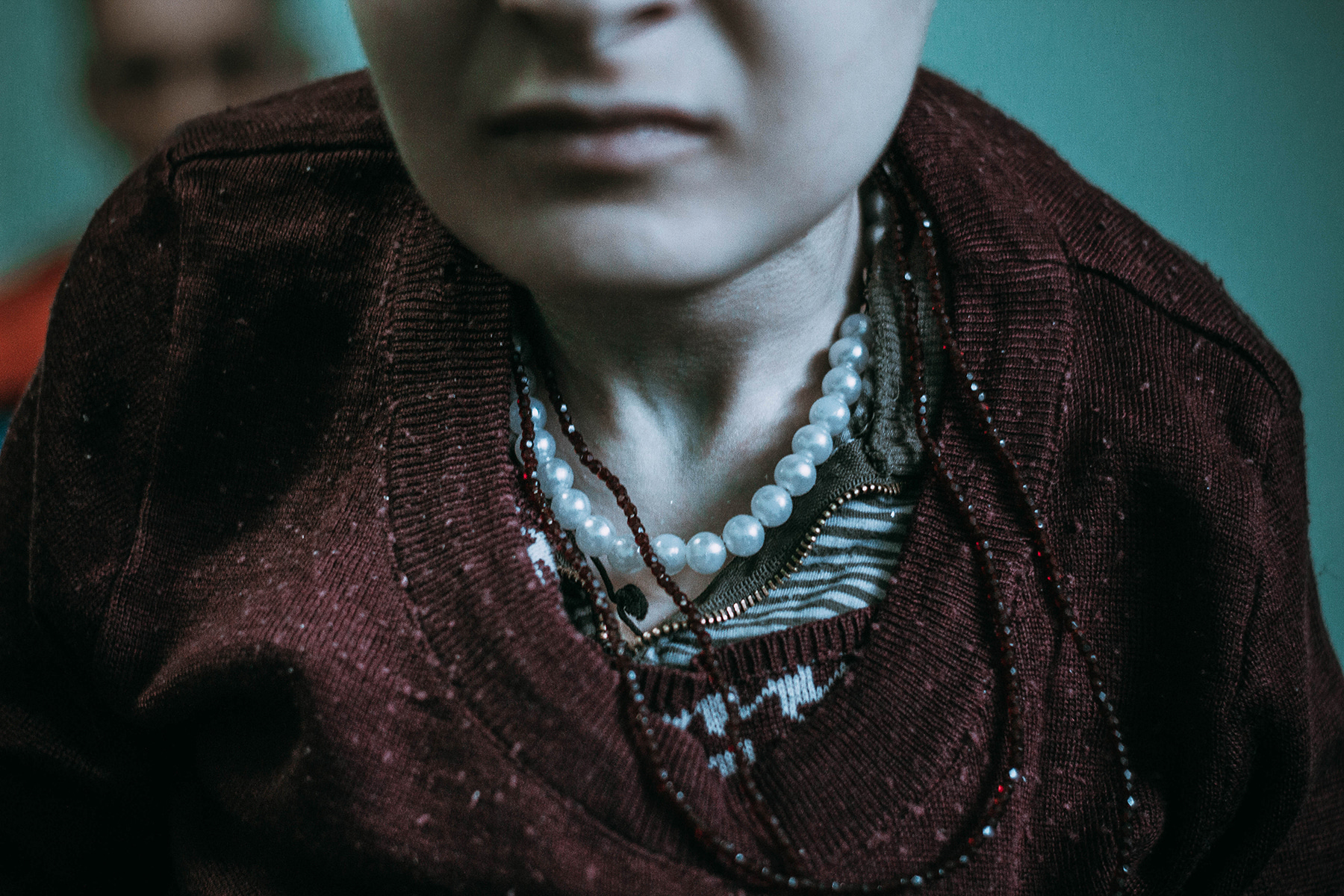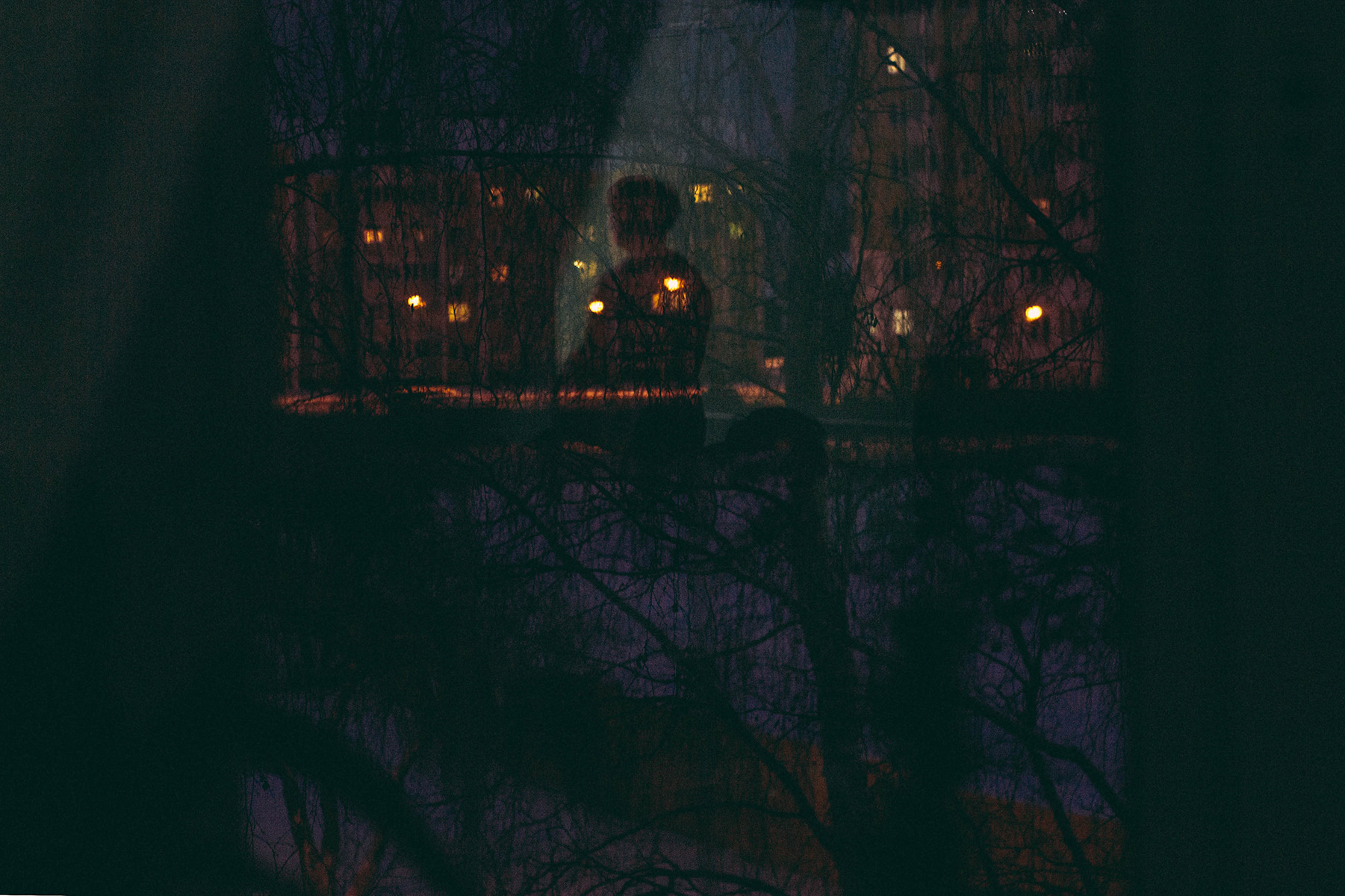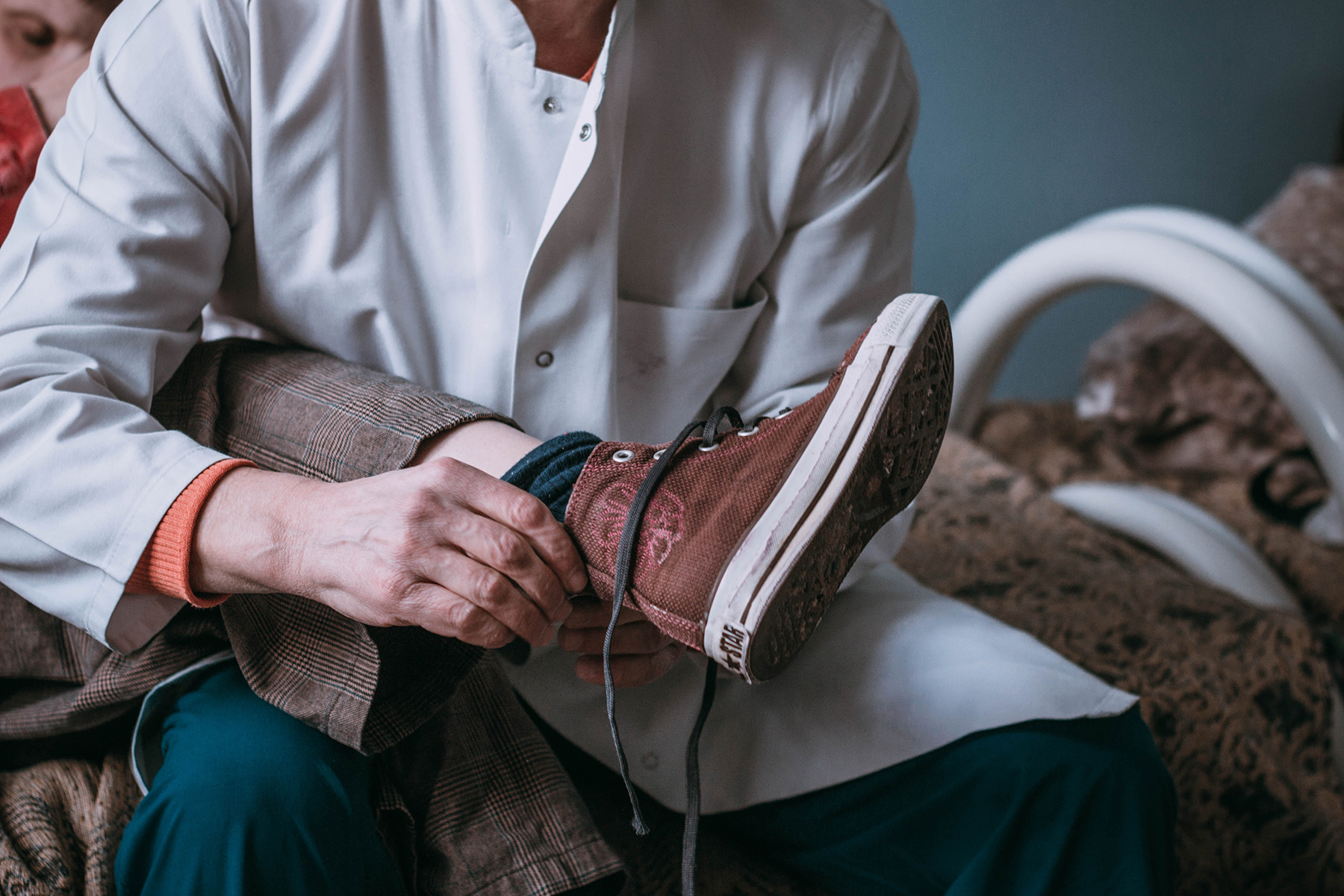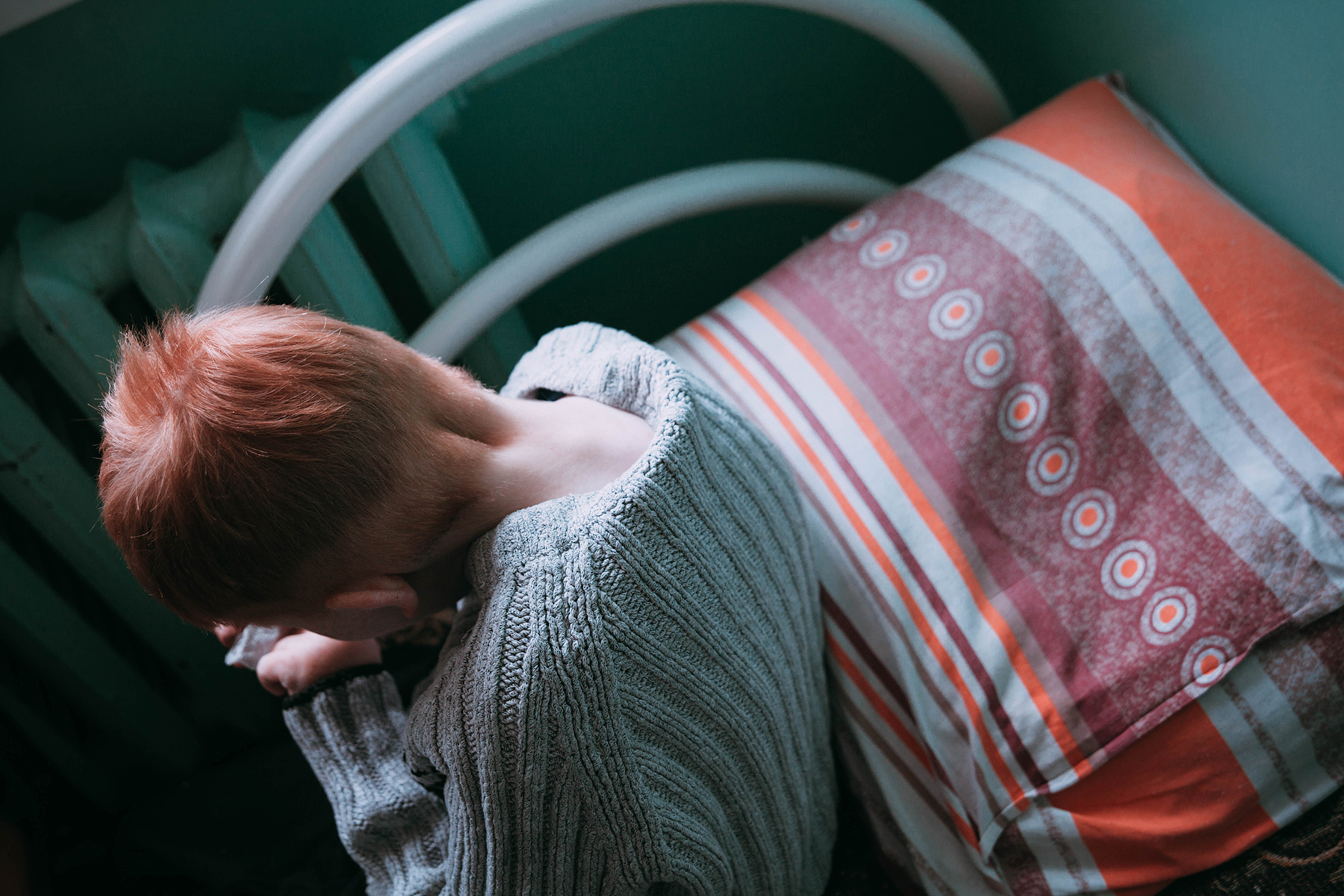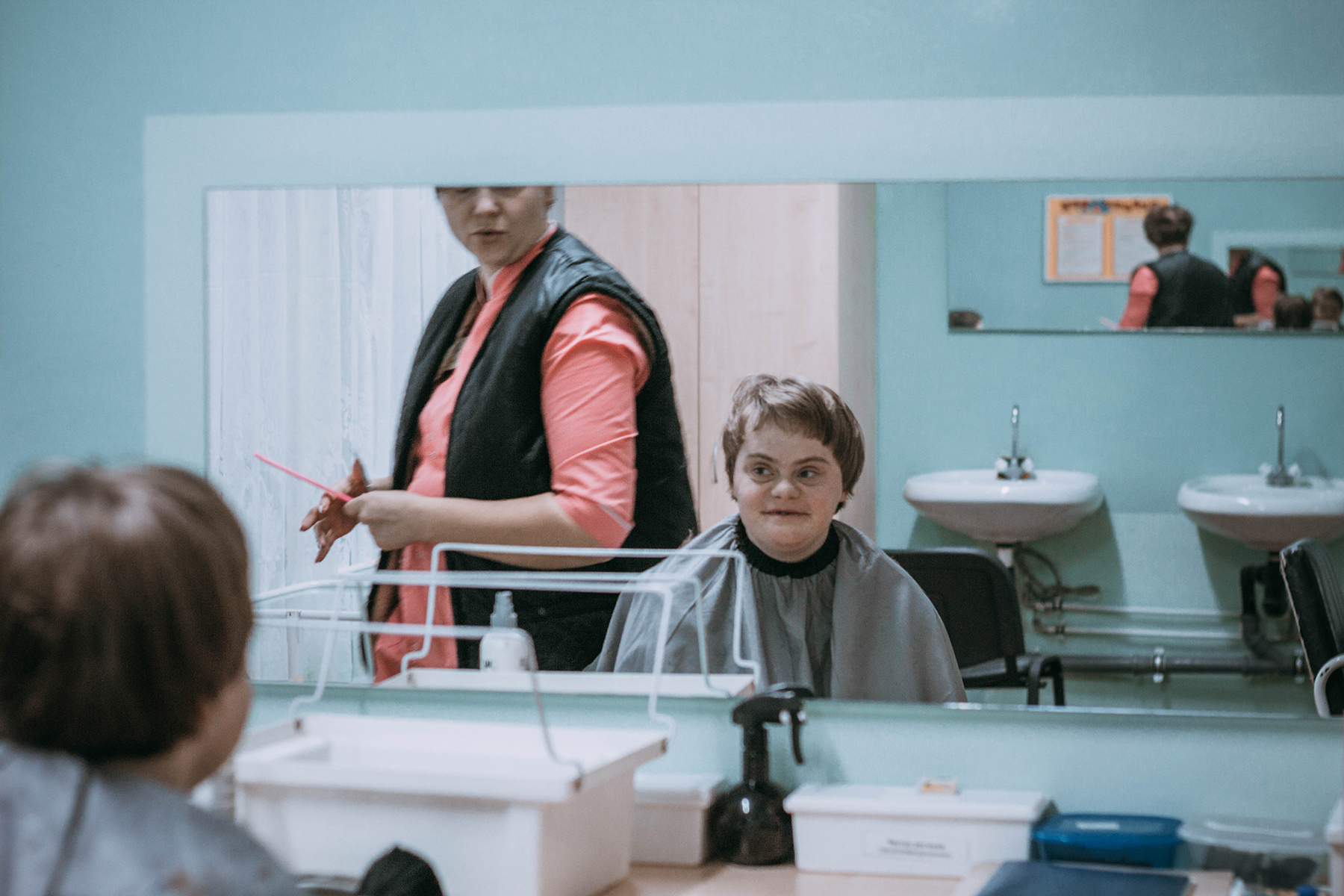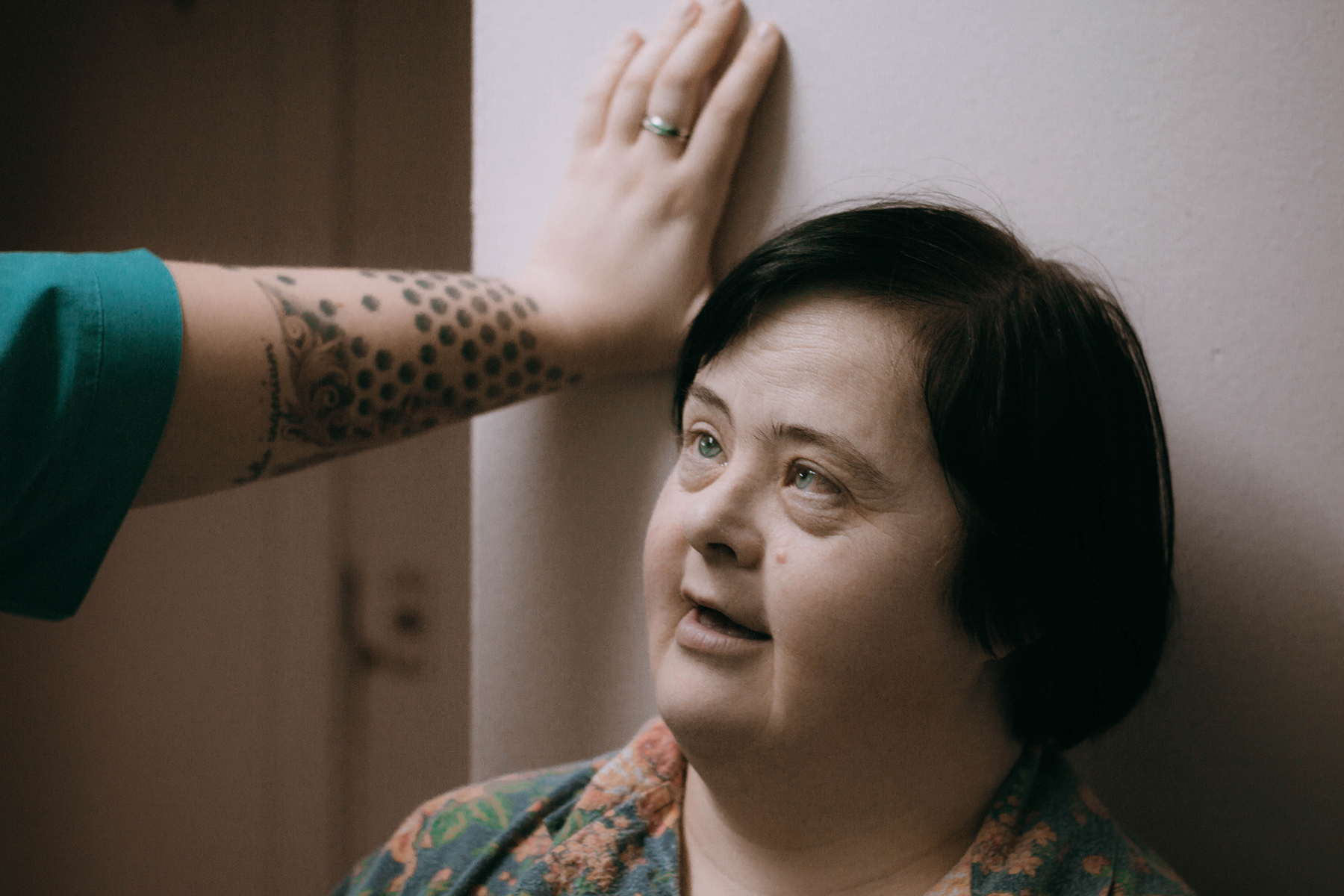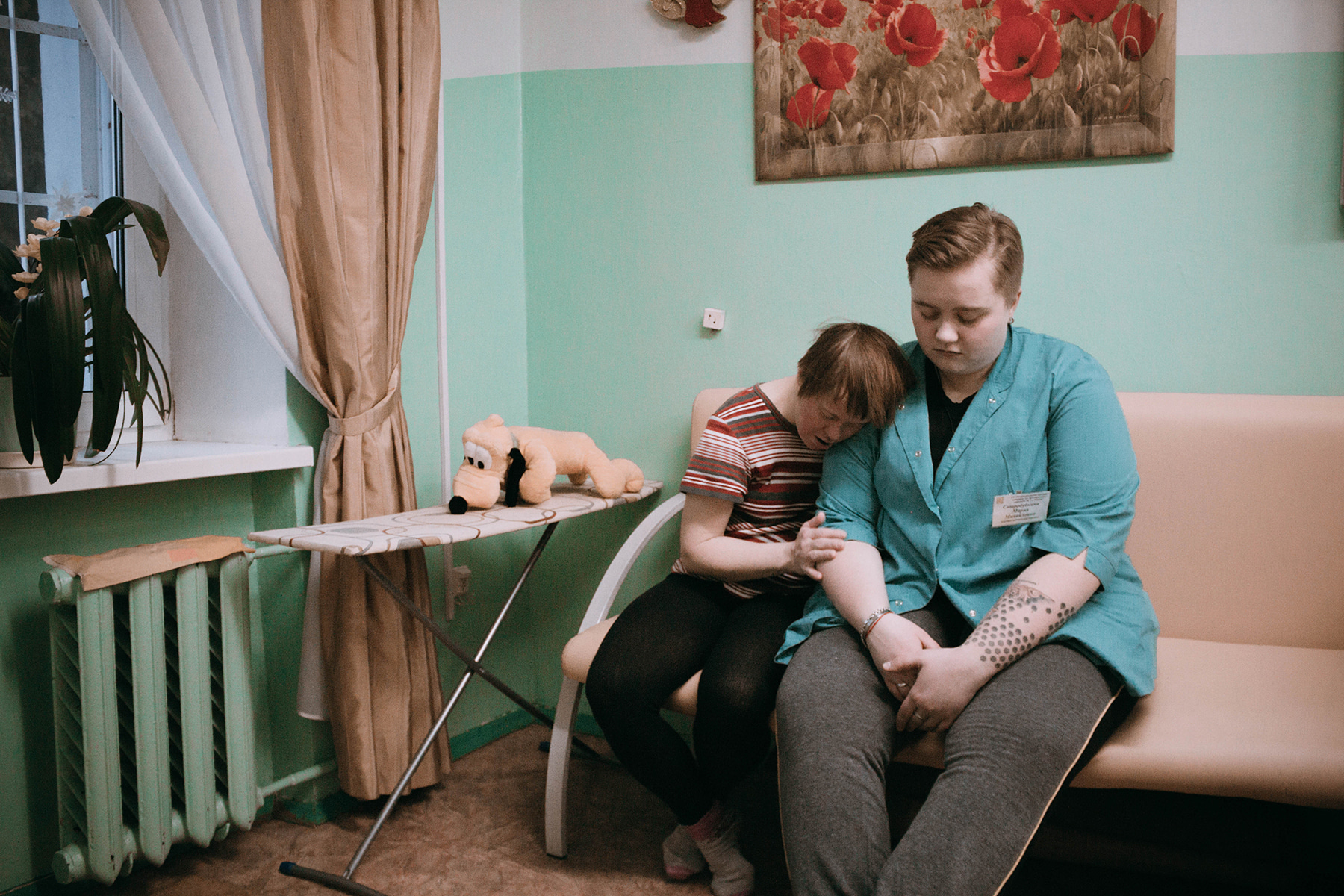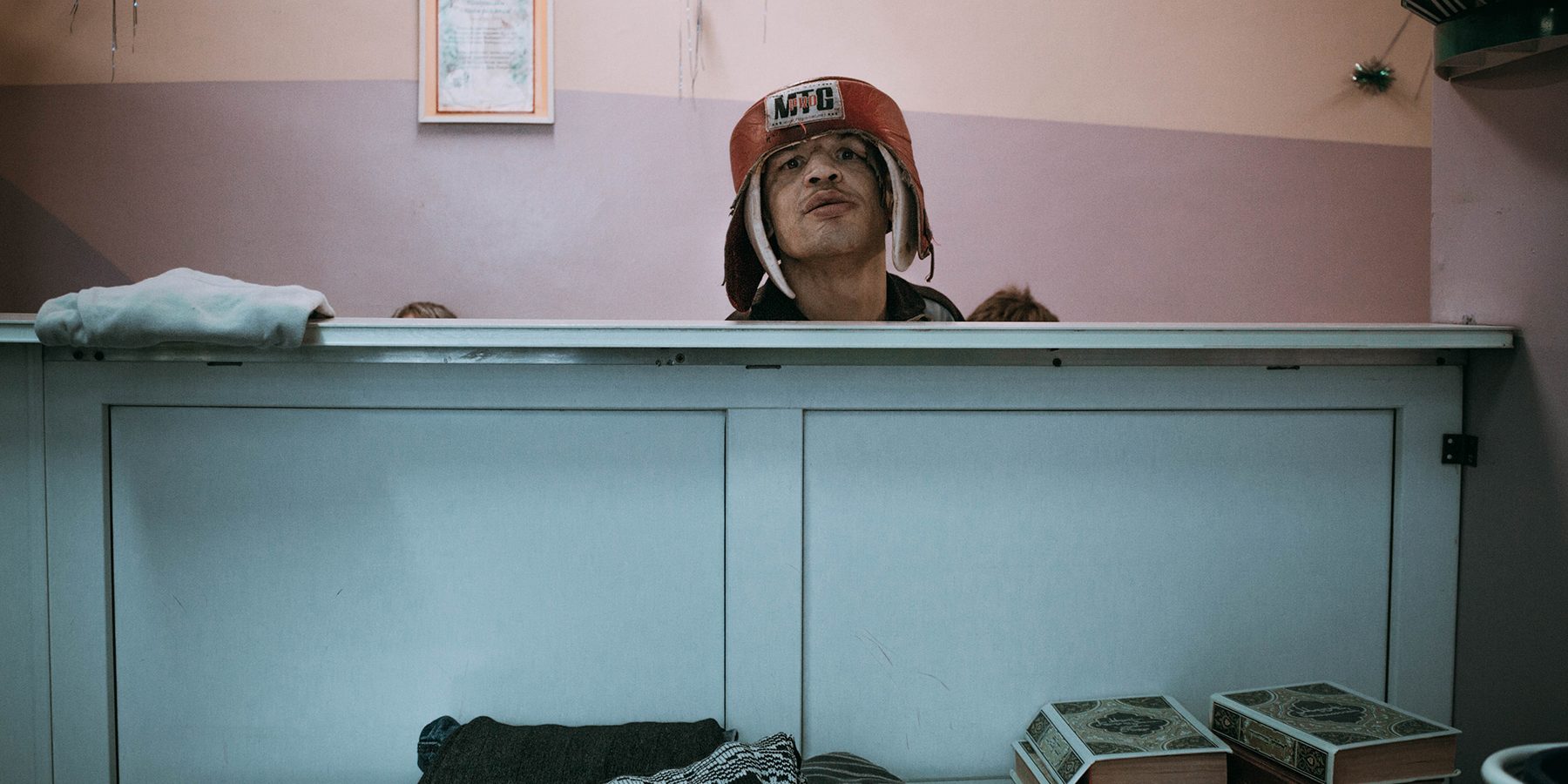
No Right for Discharge: Life in a Psychoneurological Care Home in Belarus
Psychoneurological care homes appeared in the post-Soviet countries after WWII. They were meant for those disabled veterans who could not adapt to peaceful life and were begging in the streets. Later, they also started sending people with mental disabilities there. Care homes were built in the outskirts of the cities and near villages, thus isolating those living there even more.
In 2005, the WHO adopted a declaration that provides the right for a full life for people with mental disabilities. Despite this, today the work done in the psychoneurological care homes of Russia, Ukraine, and Belarus is still aimed not at adaptation of people with special needs to independent life, but at keeping them inside the facility. Those who live in the care home rarely leave it and can’t have their own money.
In the last twenty years, the number of psychoneurological care homes in Belarus increased — there are 72 of them in the country now, with about 20 thousand residents.

Documentary photographer from Belarus. For two years, volunteered in the psychoneurological care home.
— The administration of the care home did not object against the photo project, but asked me to show them the photographs before publishing them. I didn’t have a problem with the residents either: the life there is rather dull, so a photo shoot is almost like a celebration. One of the nurse aides, however, didn’t allow me to take his pictures. He used to be a teacher, and he didn’t want his former colleagues to see the pictures and find out what he was doing for a living now.
Unfortunately, in the post-Soviet space the word ‘nurse aide’ has a connotation of disdain. We tend to think that there is nothing difficult about this job and nobody really cares who does it. Also, many care homes are near villages, where the locals have no other opportunity to earn. However, you can’t say that this job is easy: to care for people with special needs one requires patience and skills. There are no training programs for nurse aides in psychoneurological care homes in Belarus, so they have to learn at work.
A nurse aide at such a care home knows everything about the people in their care: what music they like, what size clothes they wear. They have inside jokes. Often people who come to work to a care home temporarily stay there longer. They get used to people they take care of and they feel useful.
But the longer the person works, the less sensitive they become. Young people who come to work at care homes know that they may burn out and are very afraid of it.
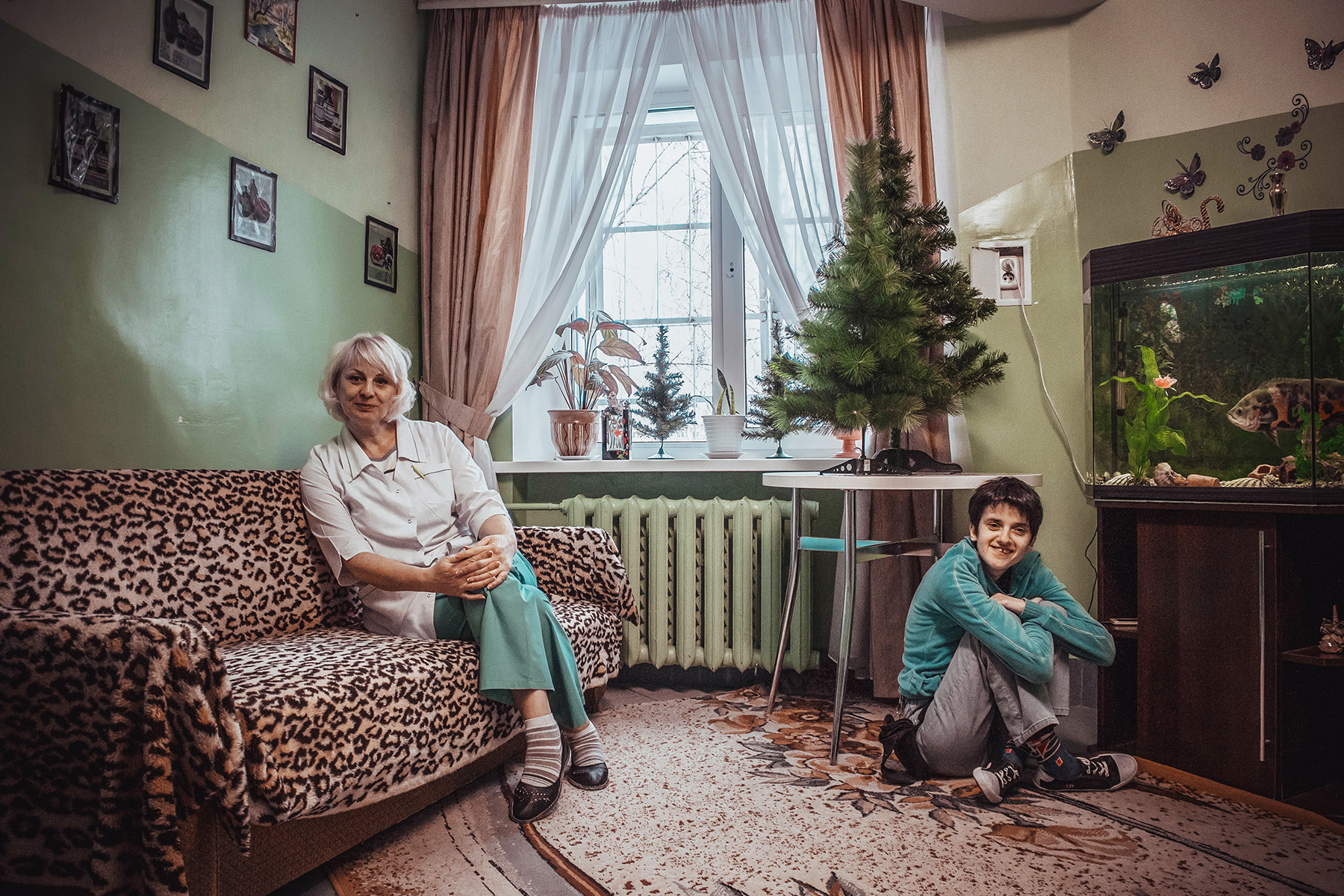
People in the care homes are all different ages: there are the elderly with dementia and there are the young with mental and physical disabilities. Relatives can’t take care of them by themselves any longer – some don’t have the time, some are not healthy enough to do it.
It is not appropriate to call these people ‘patients’: a care home is not a hospital, but rather indeed a home for people with special needs. The medical personnel calls them ‘residents’. I named my project A Home Where People Live. Through it, I wanted to tell the audience about those who work and live in the care home.
In our culture, mental illness is a terrain of prejudice and stereotypes. Most often people with special needs are treated with disdain. One time, when I found out that an elderly mother of a daughter with Down syndrome couldn’t come to visit her daughter in the care home, I offered to take her daughter to her. She refused, because she considered her daughter’s illness ‘a shame’ for their family.
It is unpleasant to face such attitude, because people with special needs are very kind and attentive. They always remembered my birthday and were willing to share their last candy. I am still in touch with many of them on social networks and through the phone.
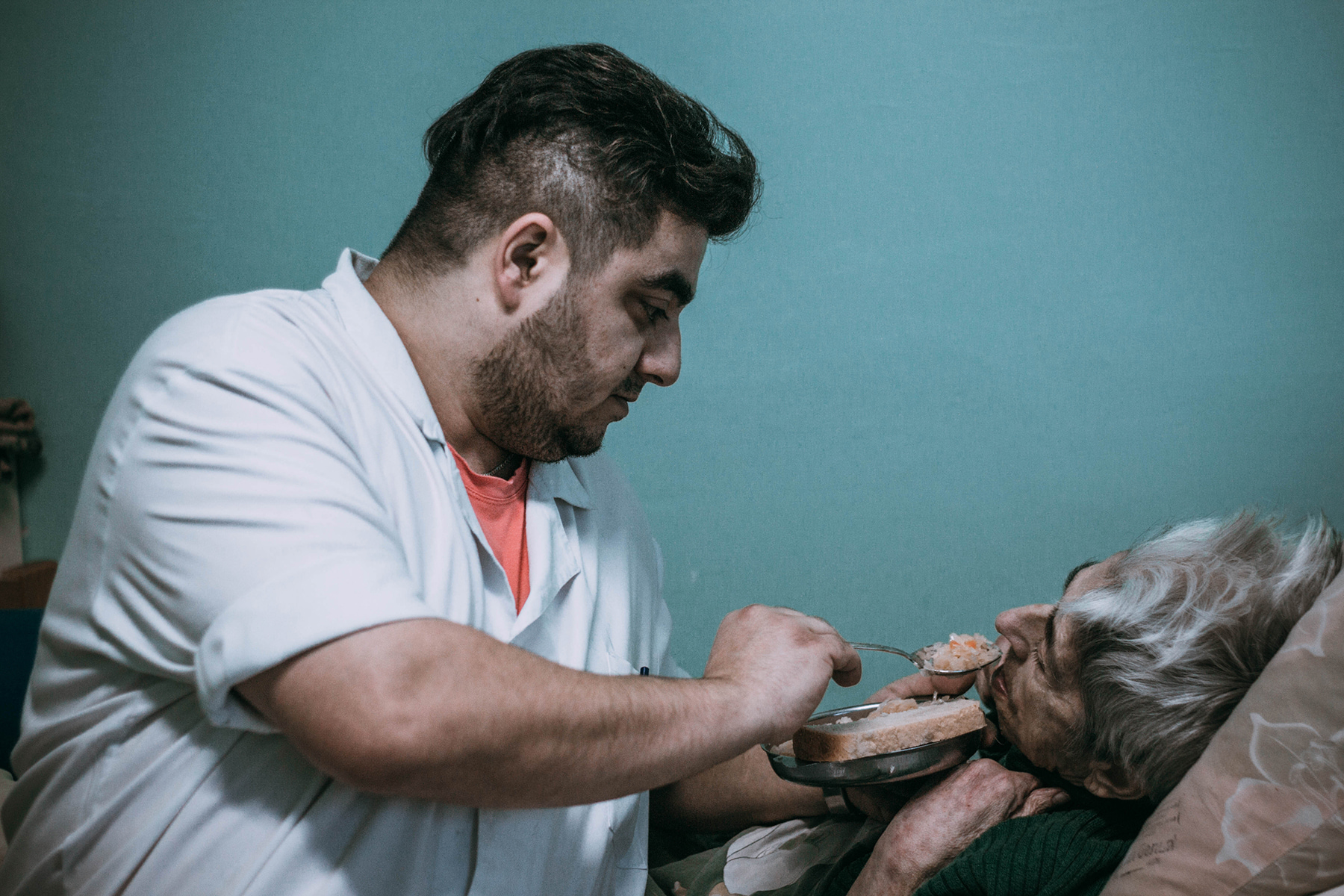
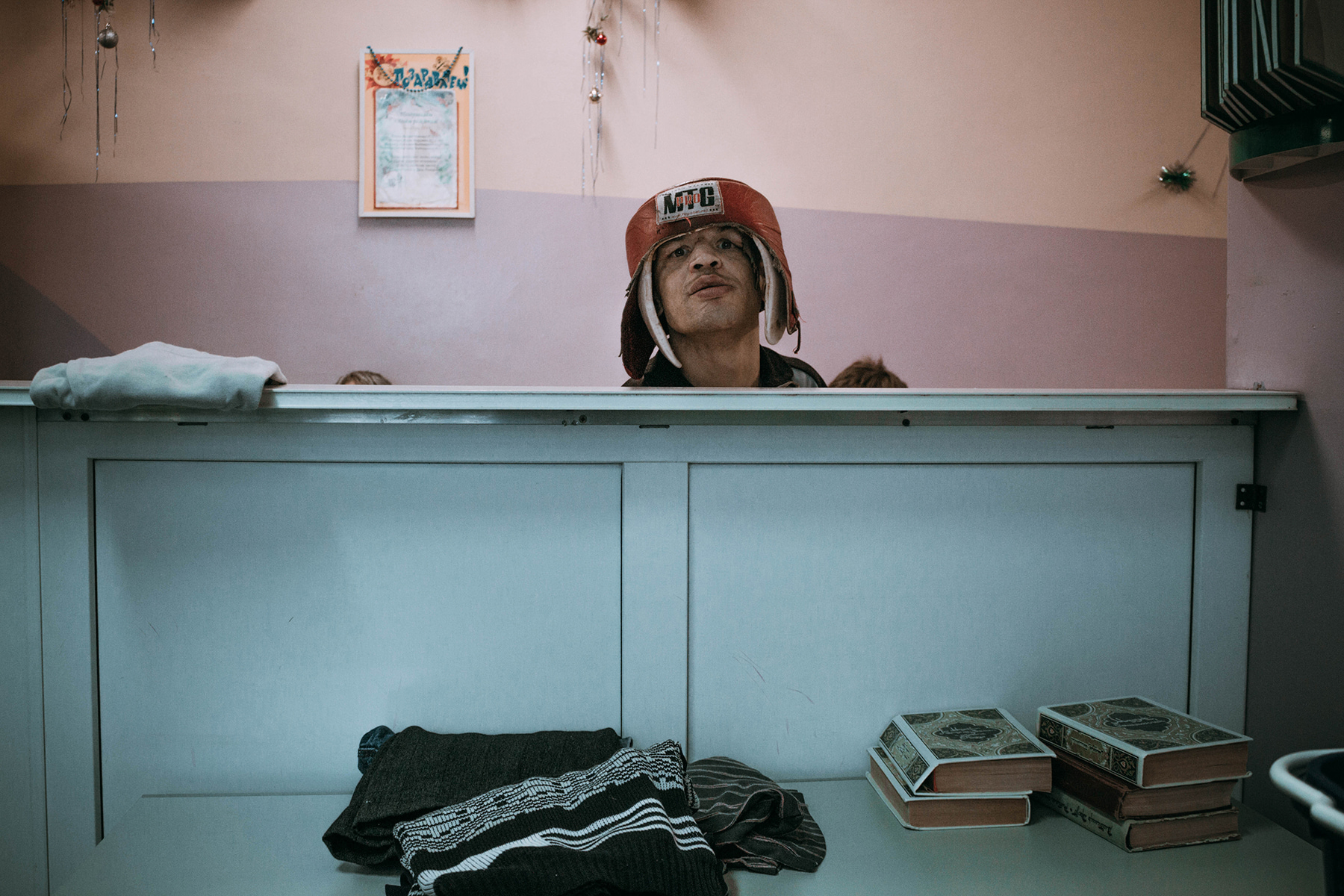
I made a friend there, Liuba. Liuba has Down syndrome, and she spent her entire life in a care home – first for children, and then for adults. I first met her at one of the discos they have there: Liuba danced a lot and did it beautifully. We quickly became friends. I even took her out to a rock concert and shopping. Communicating with me brought some improvements – Liuba started talking better.
Some of the residents know that they will spend the rest of their lives in a care home and it makes them sad. The others take it calmly: the most important thing is that they are fed and clothed. However, all of them would like an opportunity to earn and manage their money themselves (such an opportunity may come if the law on partial legal capability is passed). The law about shared custody would also be handy – it will allow friends of people who live in the care home take them outside for walks.
With support, most of the people in the care home could maintain a household. However, from a legal point of view all these people are incapable, that’s why they can’t even go out on the street on their own. Most of the pension that is assigned to them goes to cover their accommodation: 10% remains for personal needs, but they don’t receive this money. If you want to order something, you need to apply for it in writing, and then the administration decides whether you need it or not. This approach violates the rights of people living in a care home, and I hope this changes soon.
